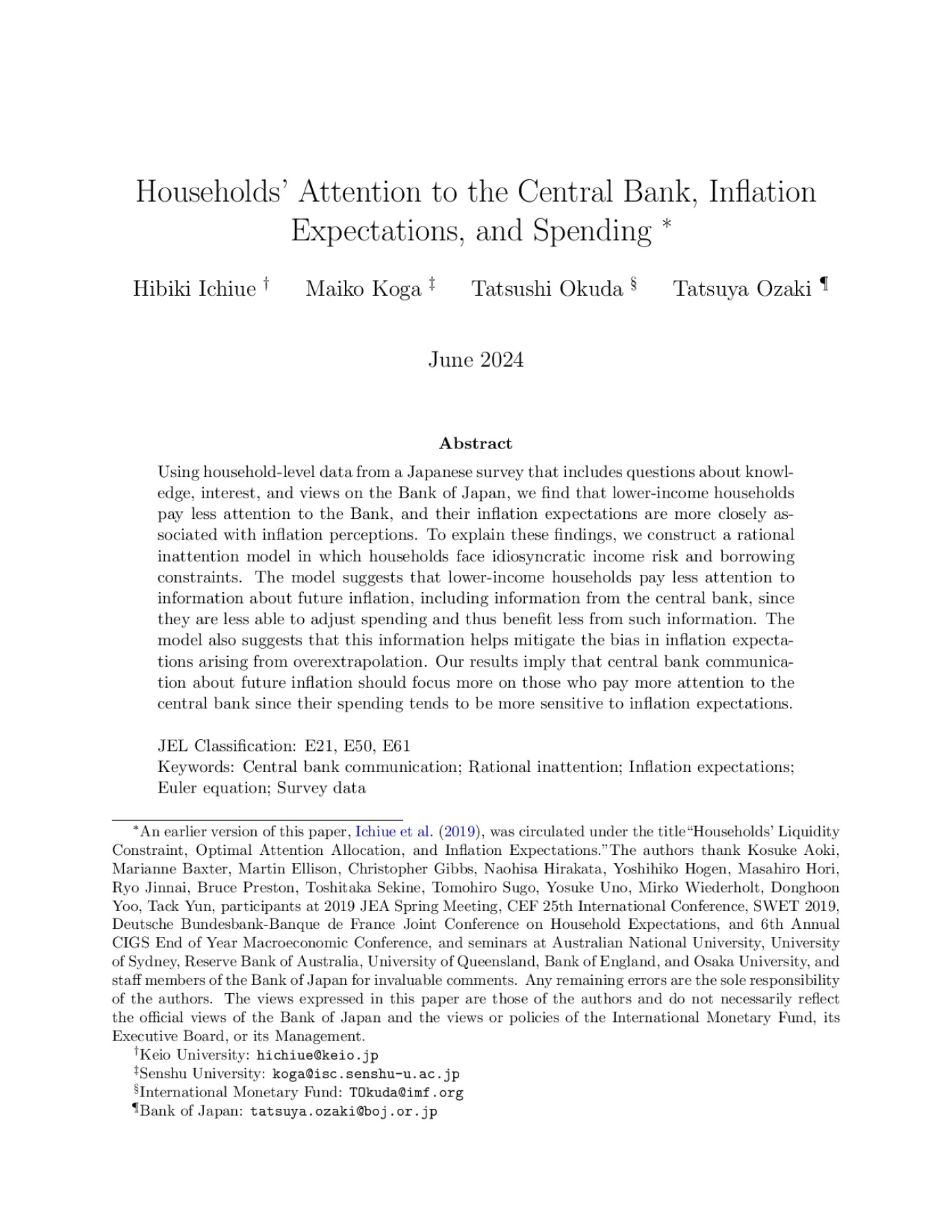2024 Australasia Meeting, Melbourne, Australia: December, 2024
Households' Attention to the Central Bank, Inflation Expectations, and Spending
Hibiki Ichiue, Maiko Koga, Tatsushi Okuda, and Tatsuya Ozaki
Using household-level data from a Japanese survey that includes questions about knowledge, interest, and views on the Bank of Japan, we find that lower-income households pay less attention to the Bank, and their inflation expectations are more closely associated with inflation perceptions. To explain these findings, we construct a rational inattention model in which households face idiosyncratic income risk and borrowing constraints. The model suggests that lower-income households pay less attention to information about future inflation, including information from the central bank, since they are less able to adjust spending and thus benefit less from such information. The model also suggests that this information helps mitigate the bias in inflation expectations arising from overextrapolation. Our results imply that central bank communication about future inflation should focus more on those who pay more attention to the central bank since their spending tends to be more sensitive to inflation expectations.
Preview



















































